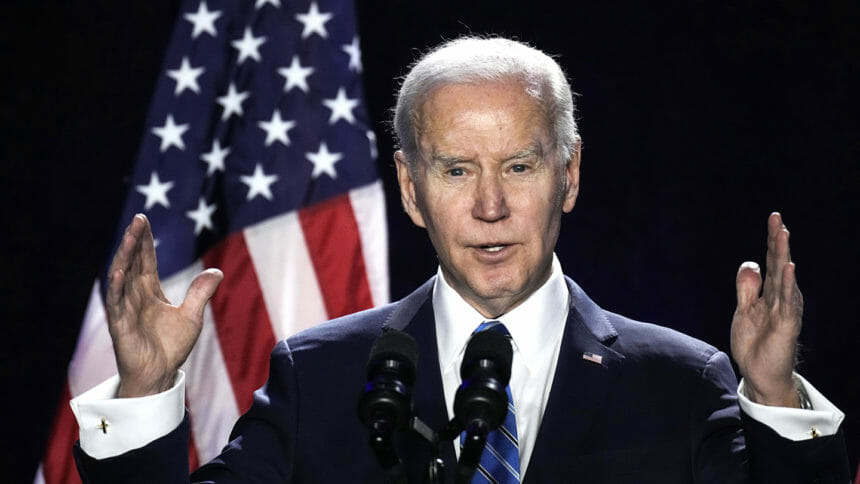
A group of 15 Republican governors this week urged President Joe Biden to reconsider the federal staffing mandate his administration has proposed for the nation’s 15,000 nursing homes.
The state top execs cited potential facility closures and the likelihood that the proposed rule’s $4 billion annual cost would be passed on to public and private health plans and taxpayers in a Nov. 1 letter sent to the White House.
“Republican governors are pulling multiple levers to ensure these facilities have the staff they need to care for their vulnerable residents,” the governors wrote. “In contrast, your proposed rule treats this complex, deep-rooted problem as something to be solved with a simple wave of the bureaucratic wand. This is not only unrealistic, but it also threatens to unravel the work we have done, while harming the seniors, elderly and disabled it’s designed to help.
“We urge you to reconsider your commitment to unfunded mandates and instead enter into a genuine state-federal dialogue on how best to serve residents of long-term care facilities in our states,” they added.
The state action accompanies intensifying activity in Congress as the rule’s comment period approaches its close on Monday night.
Roll Call, a publication read widely by members of Congress and their teams, reported Thursday that a Republican lawmaker planned to include an effort to block or limit the staffing proposal in a labor-health-and education funding bill. Roll Call said Rep. Greg Murphy (R-NC) would offer an amendment before a Friday (Nov. 3) Congressional deadline that blocks funding for the bill.
It was unclear Thursday how that effort might thwart efforts by the Centers for Medicare & Medicaid Services, which has proposed no new additional spending to support the rule’s hiring requirements. The agency did propose $75 million to establish a nurse training pipeline, but officials have said publicly that the funding would come from existing dollars in the CMS Civil Monetary Penalties Fund.
Top Republicans on the House Energy and Commerce, House Ways and Means, and Senate Finance panels also wrote to several agency heads earlier this week calling for the staffing proposal’s withdrawal.
In their letter, the Republican governors took issue with the mandate’s one size-fits-all approach, arguing it doesn’t take into account the needs of individual facilities or the communities they serve.
“CMS’s proposed regulations impose a nationwide staffing requirement with no regard for unique geographic and economic considerations,” they wrote, adding that 38 states tailor their own staffing requirements “to the unique requirements of each state.”
“CMS’s blanket requirement completely usurps these existing requirements,” they added.
Governors from Georgia, Indiana, Iowa, Mississippi, Missouri, Montana, Nebraska, Nevada, New Hampshire, Oklahoma, South Carolina, South Dakota, Tennessee, Texas and Wyoming signed the letter. They outlined local efforts to address serious healthcare staffing issues their states are facing.
“The nursing workforce shortage is not a new issue and our states are making significant investments to address it,” they told Biden. “We are creating and expanding innovative programs to entice young students to pursue careers in healthcare, while working in partnership with industry on this issue. That includes the expansion of nursing school capacity, grants to hire more nurses, and pioneering new healthcare apprenticeship programs that start in high school.”




